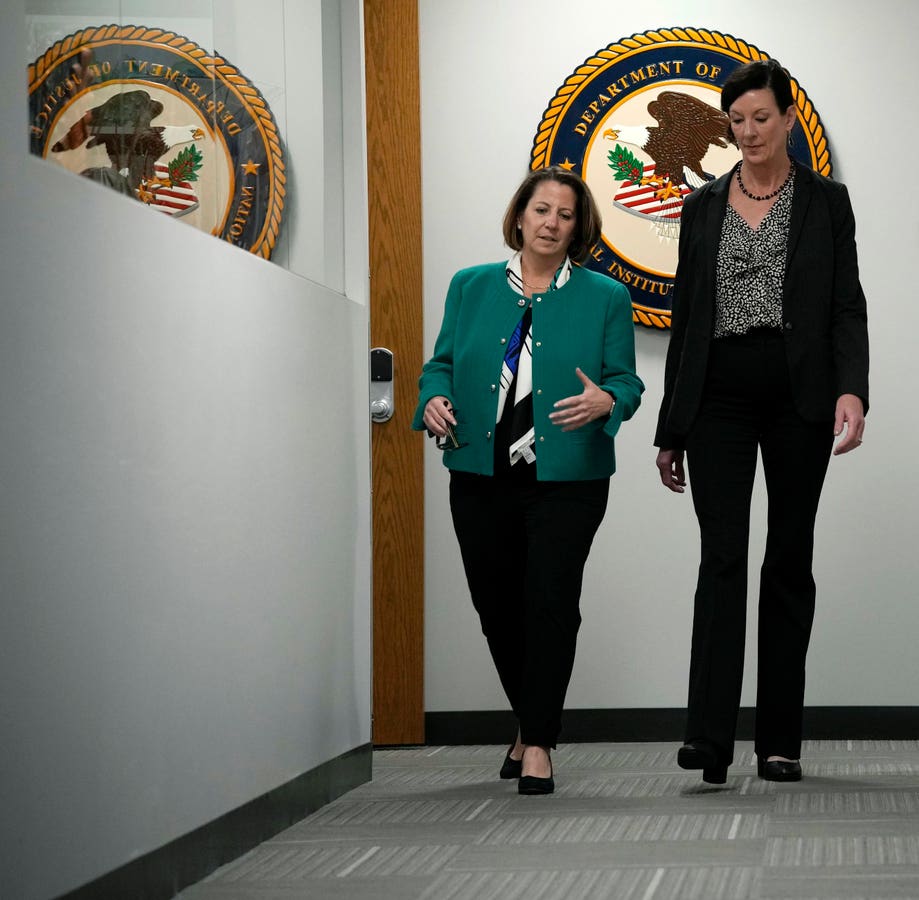In a recent interview, Deputy Attorney General Lisa Monaco conversed with Colette Peters, the Director of the Federal Bureau of Prisons (BOP), highlighting ongoing concerns related to the BOP’s operation as identified by the Office of Inspector General (OIG). The most pressing issues noted in the most recent OIG report include chronic staffing shortages, inadequate funding for crucial infrastructure repairs, and the ongoing challenge of contraband infiltration within prison facilities. OIG Inspector General Michael Horowitz emphasized that the BOP has been consistently referenced in over 100 reports spanning two decades, reflecting the systemic troubles that have plagued it. Peters defended the agency’s progress and initiatives aimed at ameliorating these rampant issues, insisting that while the OIG reports acknowledge problems, they do not fully capture the steps being taken to navigate these hurdles.
In her September 2022 testimony to the Senate Judiciary Committee, Peters laid out a strategic vision aimed at enhancing operational oversight and management efficacy within the agency. This plan includes initiatives focused on increasing staffing levels, tackling misconduct, modernizing physical structures, improving security technology, and fostering a more positive organizational culture. Notably, Peters has acknowledged the challenges linked to hiring amidst a high attrition rate but reported significant strides in improving the situation, emphasizing a shift toward fostering a more humane environment in conjunction with maintaining safety and security. Notably, the agency has seen a move from an 86% fill rate of correctional officer posts to 91%, aided by various incentives including hiring bonuses and adjusted base pay.
Addressing the dire state of BOP infrastructure, Peters has recognized that the agency historically received limited funding, which inadequately addresses its needs. With an estimated $3 billion required for facility improvements, she expressed gratitude that congressional support has led to an increase in funding from $100 million to $180 million for fiscal year 2023. Nonetheless, Peters highlighted stark disparities in maintenance funding compared to the Department of Defense, indicating the systemic neglect the BOP has faced over decades. She stressed that the agency’s infrastructure problems are deeply rooted and require time and resources to resolve, appealing for sustained financial backing.
In response to allegations of misconduct, especially concerning sexual assaults by staff, Peters is confronting these challenges directly by expanding the Office of Internal Affairs significantly and pursuing collaborative investigations with other federal agencies. The inclusion of an AUSA tasked with creating a dedicated internal oversight structure further reinforces her commitment to manage staff misconduct effectively. Peters emphasized that previous investigative efforts are now being executed regularly, and she regards various facility investigations as central to the agency’s reform efforts. These initiatives, she argues, demonstrate a commitment to transforming the organizational culture while repairing damage done to the agency’s reputation.
As she contemplates the potential implications of an incoming Trump administration, Peters articulated the importance of judiciously allocating any received funds, suggesting a focus on essential repairs and sustainable practices. Her engagement with employees has been helpful in generating cost-saving recommendations, which bolster the BOP’s operations without reliance on excessive funding. Despite the fiscal challenges, Peters maintains that creating a positive work environment is just as critical as providing financial incentives, indicating that efforts to fortify workplace morale and employee relationships remain paramount. She notes that a survey conducted revealed employees’ desire for recognition and value from leadership rather than mere financial compensation.
While acknowledging the multifaceted challenges the BOP faces, Peters expresses hope for the agency’s future. She highlights ongoing collaborations with Congress and law enforcement, bolstered through newly instated legislation aimed at increasing oversight and enabling independent channels for reporting concerns. The Federal Prison Oversight Act, which facilitates more comprehensive oversight by the OIG and establishes an ombudsman within the BOP, signifies a commitment to improving accountability. Peters’s forward-thinking approach, nurtured through her proactive leadership style and collaborative endeavors, is helping to steer the BOP toward a balanced mission that emphasizes community safety and rehabilitation. Peters confidently reiterated the agency’s core mission of ensuring both institutional safety and personal transformation for inmates, framing this dual objective as a rewarding venture for all stakeholders involved.

